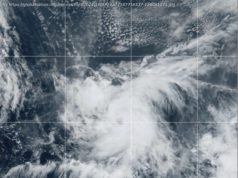Win, lose or draw, the U. S.-China manufacturing relationship will never be the same post-pandemic.
Everybody knows it. The economic power center of the world will either be the U. S. or China. Or to denationalize it: democratic capitalism or communist capitalism? Take your pick. Only one will ultimately win because the two systems are not compatible.
The real fight begins post-pandemic.
Indeed, it’s already starting.
The U. S. is blaming China for the viral outbreak, namely citing lackluster biosafety measures at the Wuhan Institute of Virolgy, a P4 safety lab that was studying bat coronaviruses and counted on millions of dollars of funding from the National Institute of Health in the U. S.
China is mad about being called out. The U. S. is mad about having more deaths from the new SARS coronavirus that started in Wuhan than any other country.
President Donald Trump has spent much of the last few months criticizing China and the multilateral organizations that many, including those in the market, now view as failures. “I’m not sure which is worse,” he says: the World Health Organization or the World Trade Organization, both of which he accuses kowtowing to China’s government.
That used to be just Trump being Trump. Post-pandemic, that won’t be the case.
“The big difference now is that anti-China rhetoric is growing more strident and common in many nations, including Britain, France, India, Brazil, Italy and Japan,” says Ruchir Sharma, the chief global strategist at Morgan Stanley Investment Management, in an op-ed published on Tuesday.
Although the European Union is a U. S. ally, we can probably cross them off the list as coming out on top. They will be neutral, playing footsies with both sides, trying to be the “voice of reason” when necessary. In most parts of Western Europe, they’ll be very open to keeping China happy.
So far, beyond Washington, the U. K. and Australia have started fights with the Chinese government.
U. K. Defense Secretary Ben Wallace says China was not forthcoming in just how deadly and quickly the new SARS spread.
Australia and China are at each other’s throats, with Beijing threatening to stop buying Australian goods. The Global Times, a China state run newspaper, infamously referred to Australia as its vassal state — or, to put it their way, “a blotch of gum stuck on China’s shoe.”
“I don’t think China is afraid of U. S. or European leadership right now,” says Perth Tolle, a Chinese-American and founder of the Life + Liberty Index.
Who Wins ‘The Pandemic Wars’
Many people, including the President, have referred to the pandemic in war terminology, with Trump saying we are at war with an “invisible enemy.”
In sticking with that analogy, and looking strictly at the economic fallout, who is coming out ahead so far? Who will come out ahead when the pandemic is just a bad memory?
Measuring it by stock market wins is a Pyrrhic victory — one in which the beating taken by the victor is so severe that the win is meaningless. The S&P 500 is up 23% from its 12-month low reached on March 23. By comparison, the MSCI China is up 9.6% since then and the CSI-300 is up 5.4%. Year-to-date ending May 4, has the CSI-300 (ASHR) and the S&P 500 (SPY) in a deadheat, with the MSCI China (MCHI) beating both and down the least at -9.99%.
Wall Street wins won’t matter. Main Street wins will.
The U. S. has a big bazooka to protect the market and, to some extent, the physical economy. It’s spent like never before. For some of the roughly 31 million unemployed, state and federal unemployment insurance is even worth more than a job.
But that’s temporary. And the money is a cork on a sinking ship with new holes bursting every week the longer the lockdowns remain. It’s designed as a relief to companies in quarantine. What about after quarantine?
That said, China has a bigger bazooka. How so? Because China said it will do whatever it takes to save its blue collar workforce, they have over $3 trillion in central bank reserves, and at least a third of their economy is state run, meaning if a provincial leader, or Xi Jinping himself, orders ghost cities be built, they’ll be built; if they order electric cars to be built without buyers, they’ll be built; if they order solar panels be put on the roof of every government building, Xi will wave his magic wand and it shall happen.






